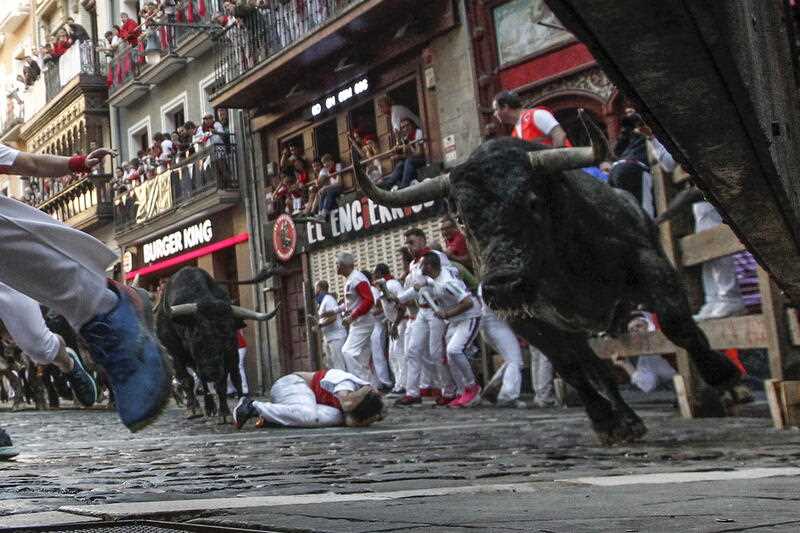A record-matching yearly toll of eight deaths has put the spotlight on Spain’s bull runs.
Politicians and animal rights defenders have been criticising the popular summer festivals held in many Spanish towns.
A steer fatally gored a 60-year-old man in Alalpardo last week, while a 73-year-old French woman – a regular in bull events – died in Beniarbeig after being gored in the chest last month.
Six men were fatally gored in other Valencia festivals and more than 380 participants have been injured – with the bull running season not ending until November.
But, despite concerns, authorities appear to be clueless as to what additional safety measures they can take.
“Some people have lost any fear of the bull,” said regional emergency chief Jose Maria Angel.
He urged revellers to be more careful – the primary recommendation to come out of a safety review meeting.
Valencia regional government deputy president Aitana Mas left the door open for a debate on whether to ban these kinds of fiestas, saying the current legislation is “not enough”.
Only a few villages have cancelled such festivals.
Tavernes de la Valldigna is one – and sees it as a matter of staying in step with its policy of defending animal rights.
“I hope our decision brings further into the streets the debate and leads to the end of this tradition,” mayor Sergi Gonzalez told The Associated Press, even as he acknowledged the tradition’s deep cultural roots.
While the public debate in Spain has largely focused on the loss of human lives, activists are demanding a total ban on events where animals are used for entertainment.
Animal rights groups are particularly opposed to events they say are deliberately more cruel to the animals, such as when cotton balls are lit on the horns of bulls or when the animal is forced into the sea and then brought back to shore.
Events known in the Valencian dialect as Bous al carrer – or Bulls on the street – involve bulls or calves released into the streets where they are provoked into charging through crowds.
Alejandro Cano, president of Defence of Bous al Carrer Associations, does not see cause any for alarm, telling the AP the casualties are “part of the festival”.
Some bulls are fought and killed by matadors but most return to their farms.
According to the Culture Ministry, some 2700 such spectacles were held last year.
Pamplona’s San Fermin running of the bulls, immortalised by Literature Nobel Prize winner and novelist Ernest Hemingway, is the prime event but there has not been a death there in 13 years.
Safety measures, public investment and the professionalism of the runners are unmatched in any other smaller Spanish festival.
Atanzon will continue celebrating its patron saint, San Agustin, in the same fashion as Pamplona does – praying to the saint that no one is killed by bulls for another summer.
By Raquel Redondo in Madrid
Get the latest news, sport, entertainment, lifestyle, competitions and more delivered straight to your inbox with the Canberra Daily Daily Newsletter. Sign up here.



